Where is the real estate market starting to drop?
ShadyWillowFarm
last year
Featured Answer
Sort by:Oldest
Comments (74)
ShadyWillowFarm
last yearbry911
last yearRelated Discussions
what is the real estate market like in Kansas City
Comments (5)Gibby ~ I am pretty sure that you have already answered this question for yourself, but in case you are still looking...I live in Kansas City (Lee's Summit to be exact) and have found that the real estate market is fabulous for buyers here! Prices never got crazy here when things were booming, so they didn't fall through the floor when the bust happened. Houses are still selling although maybe not as quickly as before. There are a decent number of "deals" out there that you can get a seriously great price on a house, and the Northland is a great place to do that. Lots of newer construction and nice neighborhoods! If you are still looking and need a great Realtor, I have a great one that I have used on more than one occasion and recommend her without hesitation when I know someone looking. She is a treasure for sure! Message me and I will give you her info! Good luck and welcome to KC!...See MoreRealtors or real estate savvy people-WWYD??
Comments (13)I'm going to trust what others noticed (priced a bit high). I'm also curious about the appraisal. Was it an actual appraisal by an appraiser, a CMA from the agent or the Zillow estimate? I'd take it off the market for the 30 days. If your Midwestern location is similar to mine, the market is usually very slow/dead in September. People are busy getting children back to school, wrapping up summer, etc. Do the shower and relist in October when people start thinking about getting into a new house before the holidays. Understand that at your price point people will likely have a house to sell first. A few comments about the house/photos. The first photo shows the front of the house. Great! What I immediately noticed though was that the top of the chimney needs to be power washed or something. It's front and center in the first photo. I recognize it's dirt from rain, etc. but everything else looks clean and neat. It makes me wonder what other short cuts you took if you cleaned everything but the chimney above the roof. I also noticed that the concrete patios and front need to be power washed. Maybe I'm just hyper aware of dirty concrete. My spouse is a little obsessed with power washing every Spring....See MoreCurrent State of Real Estate Market June 20
Comments (12)Realtors here (coastal Northern CA) will tell you they are frantically busy! Things have never been better! Sure they're busy. Rates sank because the Fed only has 1 tool left in its toolbox and that's the Fed Funds rate. They have stated publicly they are willing to even go NEGATIVE. This is unprecedented. The Fed is not doing this because they are being kind to consumers. The # of unemployed varies according to who's compiling the info, but the "best guess" for May was around 26 or 27 million. It's far higher than was seen during the Great Recession of 2008-10: Fortune: What is the real unemployment rate? (May 2020) The article is important because it points out that workers in the "gig" economy aren't counted. Also, workers EXPECTING to be recalled - even if they aren't, or are receiving unemployment benefits, are also not counted. >>A second wave of COVID-19 remains a short term threat to housing as the number of new cases reignite and states finetune their plans to reopen.>> Yeah....no. To say COVID is "short-term" is deluding ourselves. At least not in states where hospitalizations are rising (death rates don't increase for about 2-3 weeks after hospitalizations increase). We're not even out of the first wave yet and now younger adults and even teens are being infected. Plus they're going to have to keep an eye on those long-term effects since many now consider it an inflammatory disease with far-reaching effects. States are not "finetuning" their plans. They are shutting back down again, and thus the unemployment rate will creep up again. Small businesses are shutting down, often for good. Out here in coastal Northern CA, where small businesses are part of the main engine for growth, I expect the attrition rate to hit above 50% within the next four months. Most independent small business owners simply cannot make rent and expenses, especially the increased costs of PPEs for staff, in an uncertain future where consumers are becoming accustomed to on-line 'delivery to your doorstep'. Rents in SF have already dropped on the high end, in a greater percentage than has been seen in over 20 yrs. Sales increased only because the market is absolutely starved for inventory. This was true all across the US - remember articles about realtors complaining they had buyers but not enough sellers, last year and early this year? I seem to recall that just prior to the October 2008 stock market collapse, RE prices were sky-high but just slowly, every so slowly, declining during the previous 15 months. Then the Dow collapsed, and so did the RE market. A lot of people who bought homes were suddenly under water. I'm not saying it's guaranteed to happen again, mind you. But I am saying that I'm not likely to believe rosy forecasts made by people who have a vested interest in urging consumers to buy NOW! In 1989 we were a couple of those RE buyers who took the bait. Been there, done that! .......how fast we forget the past, LOL....See MoreIs it me, the real estate agent, or just the market?
Comments (11)The good news is that you clearly have an eye for desirable properties. I guess the bad news is that some things are not within your control... Sellers may go with an offer with a larger downpayment (e.g. >20%) over a smaller down payment, just because the lower likelihood of the financing problems cropping up.. Other things that could be a factor cold be other buyers with cash offers, or waiving inspection contingencies (or putting a high dollar amount on those - so you know you won't get nickeled and dime'd to death), or, the bank you're financing through (if it's the wrong one - which surprisingly are some of the "big name" banks) can be a real deterrent to someone accepting your offer. I also agree with the previous suggestion that the better networked Into the local area your realtor is the stronger your chances of your offer being presented positively to the sellers if they're looking at multiple offers....See MoreShadyWillowFarm
last yearbry911
last yearlast modified: last yearShadyWillowFarm
last yearkevin9408
last yearlast modified: last yearkudzu9
last yearbry911
last yearShadyWillowFarm
last yearbry911
last yearweedyacres
last yearsushipup2
last yearlast modified: last yearShadyWillowFarm
last yearbry911
last yearShadyWillowFarm
last yearbry911
last yearlast modified: last yearbry911
last yearlast modified: last yearShadyWillowFarm
last yearkevin9408
last yearlast modified: last yearbry911
last yearShadyWillowFarm
last yearlikestonehomes
last yearlast modified: last yearpalimpsest
last yearworthy
last yearShadyWillowFarm
last yearShadyWillowFarm
last yearShadyWillowFarm
last yearchispa
last yearlast modified: last yearvioletsnapdragon
last yearlittlebug Zone 5 Missouri
last yearlast modified: last yearsushipup2
last yearkudzu9
last yearlast modified: last yearelcieg
last yearShadyWillowFarm
last yearsushipup2
last yearShadyWillowFarm
last yearfunctionthenlook
last yearsushipup2
last yearlast modified: last yearShadyWillowFarm
last yearmxk3 z5b_MI
last yearShadyWillowFarm
last yearbry911
last yearlast modified: last yearladybug A 9a Houston area
last yearbry911
last yearlast modified: last yearShadyWillowFarm
last yearbry911
last yearlast modified: last yearG W
last yearShadyWillowFarm
last yearShadyWillowFarm
last yearsushipup2
6 months agolast modified: 6 months ago
Related Stories
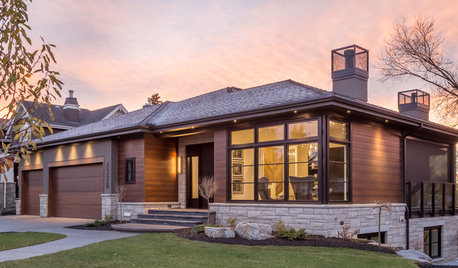
PRO TIPSHow the Real Estate Market Can Shape Your Business
Buying and selling trends influence the type of remodeling jobs homeowners ask for. Learn more in this story and webinar
Full Story0

SELLING YOUR HOUSE15 Questions to Ask When Interviewing a Real Estate Agent
Here’s what you should find out before selecting an agent to sell your home
Full Story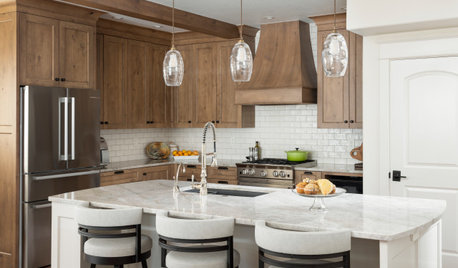
KITCHEN BACKSPLASHESWhere to Start and Stop Your Backsplash
Consider these designer tricks to work around cabinets, windows and other features for a finished look in your kitchen
Full Story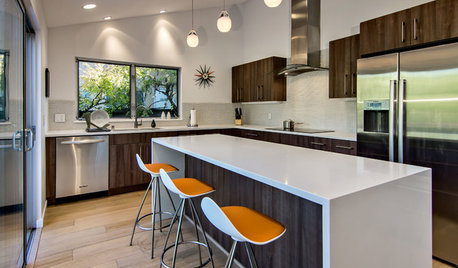
REMODELING GUIDESWhere to Splurge, Where to Save in Your Remodel
Learn how to balance your budget and set priorities to get the home features you want with the least compromise
Full Story
DECORATING GUIDESHow to Decorate When You're Starting Out or Starting Over
No need to feel overwhelmed. Our step-by-step decorating guide can help you put together a home look you'll love
Full Story
DECORATING GUIDESWhere to Splurge and Where to Save When Decorating
See where it makes sense to invest in durable essentials and focal pieces, and where to economize on other things
Full Story
LIFESimple Pleasures: A Real Sit-Down Breakfast
Give grab-and-go the heave-ho. To start the day right, treat yourself to a proper breakfast in a cheery spot
Full Story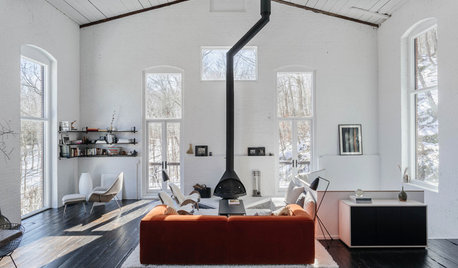
HOUZZ TOURSA Former Foundry Becomes a Jaw-Dropping Modern Home
The industrial building in a New York forest features dark wood floors, crisp white walls and a charred-wood loft
Full Story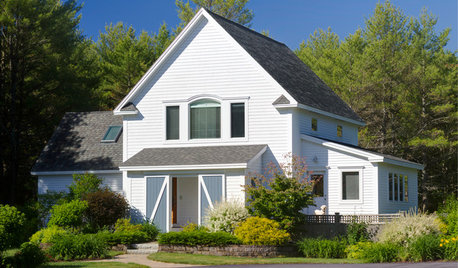
MOVINGTips for Winning a Bidding War in a Hot Home Market
Cash isn’t always king in a bidding war. Get the home you want without blowing your budget, using these Realtor-tested strategies
Full Story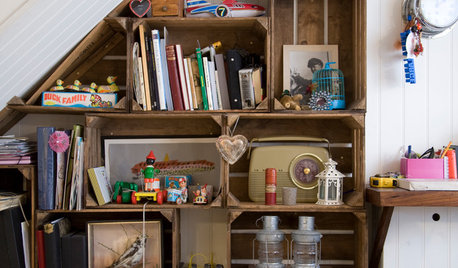
VINTAGE STYLEFlea Market Find: Apple Crates
If life gives you apples, reuse the vintage crates they came in to decorate your home
Full Story



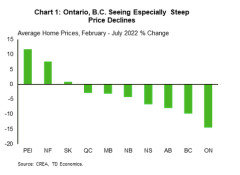
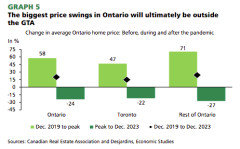


bry911